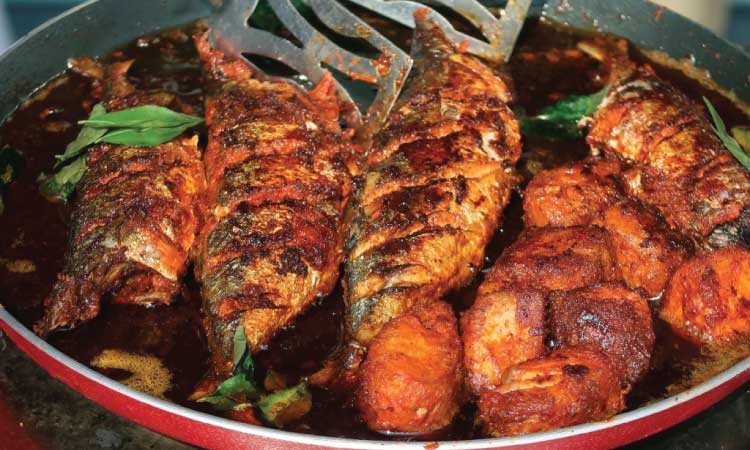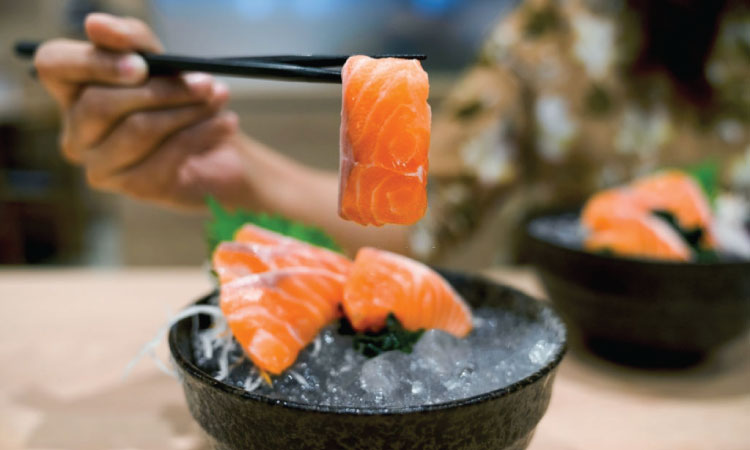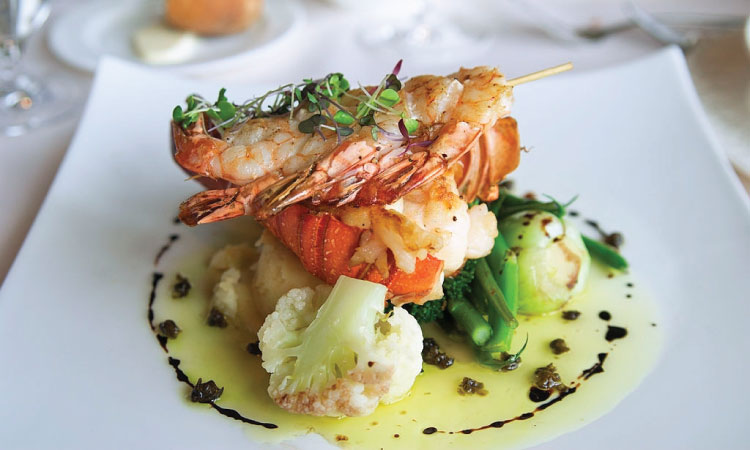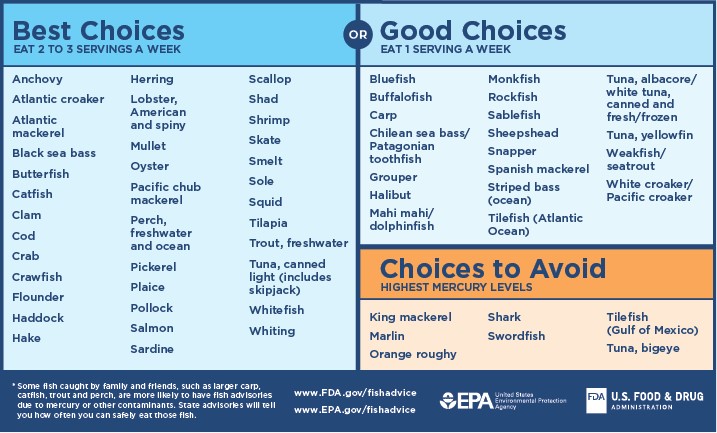After the harrowing and stressful ordeal of having to pick and choose what to eat when pregnant, it is natural for new mothers to look forward to going back to their normal diets. If you can’t resist the urge to eat seafood while breastfeeding, this article is for you.
It is important to remember that if you are a breastfeeding mom, there are still many foods that you have to watch out for. The food you eat can affect your breast milk, not only regarding the taste but also regarding the nutritional content. Therefore, a nursing mother must pay utmost attention to the food she eats.
Can You Eat Seafood While Breastfeeding?
On that note, it will comfort you to know that it is almost always safe to eat seafood when breastfeeding, in moderation. In fact, it is very important that you include a little seafood in your diet.
Fish and other types of seafood are a rich source of many vital nutrients, such as Omega-3, protein and more. The DHA contained in seafood is hard to be found in any other food. This nutrient is incredibly important for the healthy brain development of the baby. Thus, most experts recommend eating seafood while breastfeeding.
So is all seafood safe while breastfeeding?
The answer is, unfortunately, “No”. Not all the seafood is safe during breastfeeding. Some types of seafood contain high levels of a chemical called methyl mercury. Thanks to the pollutants that were dumped into rivers and sea.
Studies have proved that breast milk is an important source of methyl mercury exposure in infants. The entire consequences of this chemical on the growth and development of a baby are not yet fully evaluated.
Even then, according to the Food and Drug Administration, a high level of mercury content in certain seafood does pose a risk to the development of babies. Precisely it can harm the baby’s central nervous system. In this circumstance, it is not safe to eat seafood while breastfeeding.
Seafood To Avoid During Breast Feeding

Shark, king mackerel, swordfish, and tilefish should be completely avoided during breastfeeding. This seafood contains a high level of methyl mercury. You can work out a simple logic here.
Calculate Due Date With LMP
The fish that are placed high on the food chain, obviously consume other smaller contaminated fishes. This increases the accumulation of the methyl mercury in their body.
Therefore, logically speaking, it is always best to choose smaller fish which is placed lower on the food chain. This way you can eat a fair amount of fish during breastfeeding. The contamination of methyl mercury will be fairly low in these fishes.
How Much Seafood Can I Eat While Breastfeeding?
Organizations and agencies like the FDA have released an estimate of the safe amount of seafood a nursing mother can eat when breastfeeding. (This is, of course, only applicable if both mother and child are free of any allergies related to seafood. If either the mother or the baby has an allergy to a food item, it is not safe to eat seafood while breastfeeding)
It is recommended that breastfeeding mothers consume around 2-3 small servings of seafood every week. And as this estimate is based on average, if you increase your intake of seafood in one week, you can just decrease it next week.
How Long Does Seafood Stay In Breast milk?

Babies can develop allergies to seafood when mother eat seafood while breastfeeding. The ill-effects of seafood can linger in your breast milk for two weeks!
Proteins from the foods that trigger an allergy in the child can appear in the mother’s breast milk within 3-6 hours after consuming it.
Even if the mother takes this seafood away from her diet, the allergens may take 1-2 weeks to disappear from the milk. However, by this time, the baby will be shifted to formula, and his or her symptoms should slowly improve. The allergens will take up to ten days to clear from the baby’s system.
How long does methyl mercury remain in body?
The half-life period of methyl mercury is 70 days. This means it takes 70 days for the level of methyl mercury in the human body to reduce to half. When it comes to breastfeeding mothers, it is found that the half-life period is much shorter. This is because organic mercury will be excreted through breast milk.
Mercury levels in breast milk
When the mothers eat seafood contaminated with mercury, the mercury enters her bloodstream. It is estimated that about one-third of the mercury in the mother’s blood enters her breast milk.
However, how much mercury enters the body of the baby through the breast milk depends on what type of mercury entered the mother’s blood. If it is inorganic mercury, it can enter the breast milk quite easily. However, this type of mercury is poorly absorbed by the baby.
On the other hand, if the mother ingested organic mercury compound, it will not enter the breast milk as easily as the inorganic mercury. However, even the little amount of this kind of mercury that managed to get into the breast milk will be easily absorbed by the baby.
When the contaminants from various sources like industries are discharged into natural water sources like streams, river, and sea, microorganisms like plankton and bacteria in water and soil convert the elemental (metallic) / inorganic mercury into organic mercury.
Methyl mercury starts accumulating in seafood like fish, shellfish, etc. This is how Methyl mercury accumulates in the food chain. When humans consume seafood loaded with methyl mercury, it gets into their bloodstream.
Effect Of Mercury On Human Body
Mercury is not only non-essential but also a poisonous metal as far as the human body is concerned. It is found that high mercury exposure alters the central nervous system of a person.
Mercury can pass into the placenta, and breast milk and the child in womb and a breastfed baby can contract it too. It takes about six months to one year to depart the bloodstream after stopping the exposure.
What Seafood Can I Eat While Breastfeeding?

According to the FDA, fish other than the few mentioned above, that have a high level of mercury is safe during breastfeeding. Fish are a rich source of omega-three fatty acids. These fatty acids get into the breast milk and contribute to the healthy brain development of breastfeeding child.
Likewise, according to the FDA, breastfeeding mothers can also eat seafood like Shrimp, catfish, canned light tuna and salmon, which are all low in methyl mercury. Similarly, there is no harm for breastfeeding mother to taste sushi once in a while.
The risk of bacterial infection is still there while eating raw fish. However, this time, it will not directly affect the baby as it is no longer connected via the umbilical cord. But it can still create issues to the mother.
The chart given below helps determine how to eat seafood while breastfeeding, based on their mercury levels. This chart can also help you to select which fish to eat, and how often to eat them.
Frequently Asked Questions
Breastfeeding mothers do not have to abstain from eating shellfish while breastfeeding. Shellfish are loaded with zinc, protein, healthy fats, and omega-three fatty acids. Therefore it carries many health benefits for the breastfeeding mother.
However, it is important to limit its quantity. Still, two servings per week are safe during pregnancy. By following these rules of thumbs, you can enjoy shrimps, crabs, octopus, oyster, clams, molluscs, etc. during breastfeeding.
However, if the baby shows signs of allergy if you breastfeed the baby after eating shellfish, avoid it until the breastfeeding phase is over. The signs of baby having an allergic reaction include getting colic, stomach pain, vomiting, changes in bowel movement, and appearance of rashes and swelling in the skin.
Crawfish are crustaceans resembling small lobsters found in freshwater. It is very tasty and carries all the nutrients of shellfishes. However, if the breastfeeding mother has an allergy to shellfish, obviously, she should abstain from crawfish as well.
Yes, eating river fishes like rohu is safe during breastfeeding. It is easily digestible and poorer in fat content. Moreover, these kids of freshwater fishes are high in minerals such as zinc, iron and calcium.
Very low mercury content in river water fishes makes it a good catch during breastfeeding. It is better to choose fish that are found in local ponds like rohu and hilsa instead of seafood that carries a risk of mercury poisoning.
The safety of basa depends on which river it is from. If the river is contaminated by industrial waste, this fish carries a high level of mercury polychlorinated biphenyls (PCBs) in it. It is also found the ponds that basa are farmed in are susceptible to contamination as well. So it is safe not to dig into this soft milky fish during breastfeeding.


